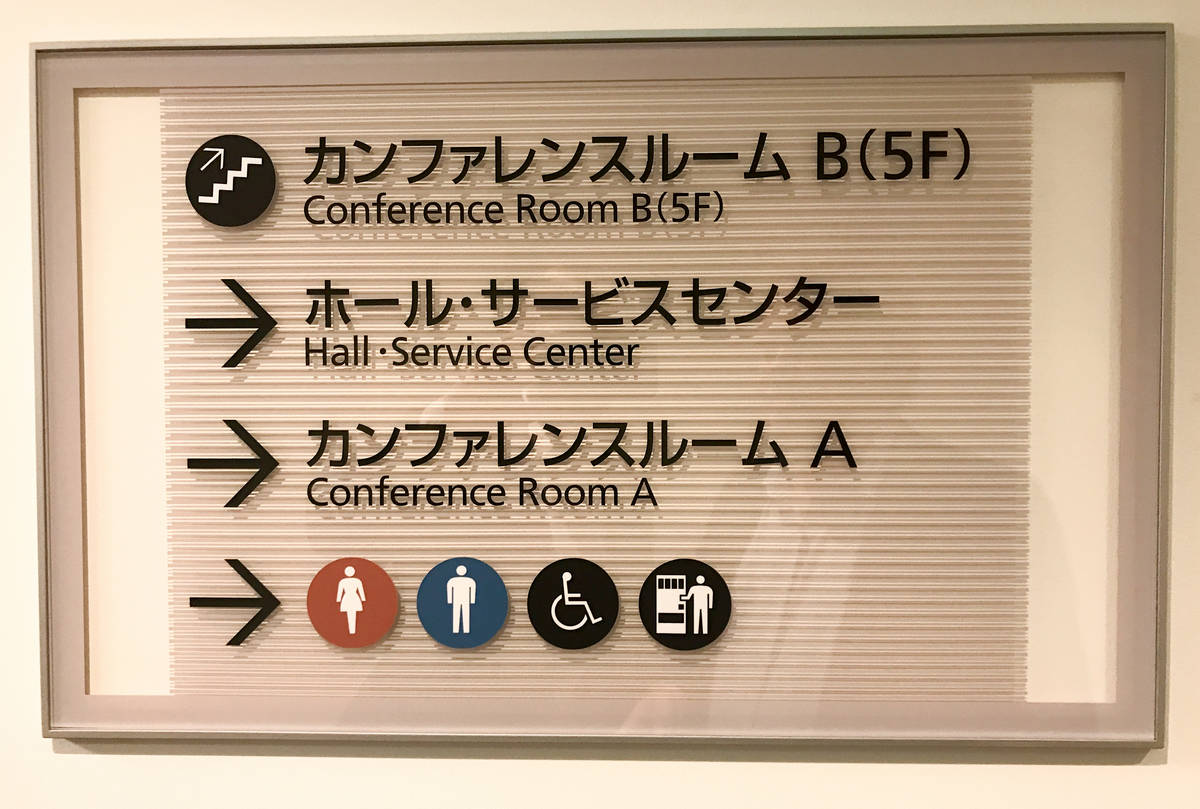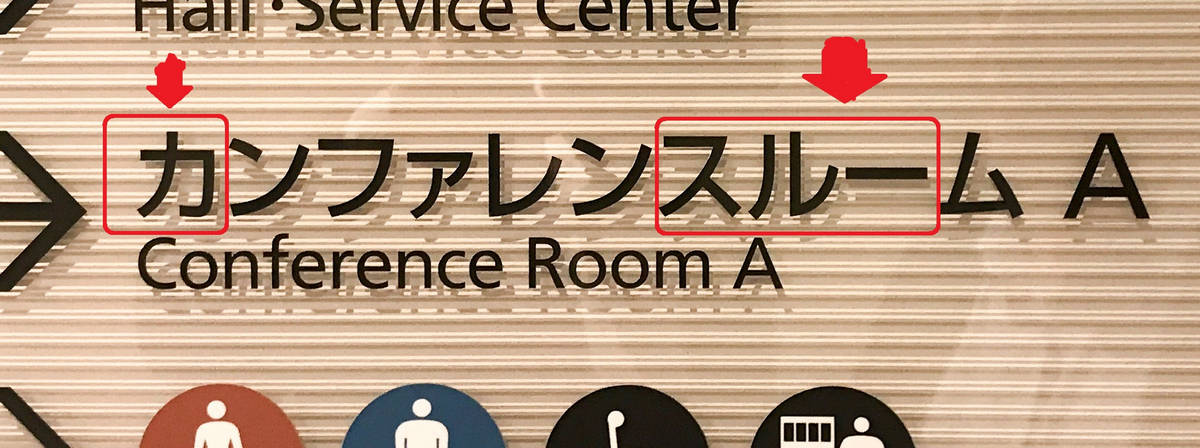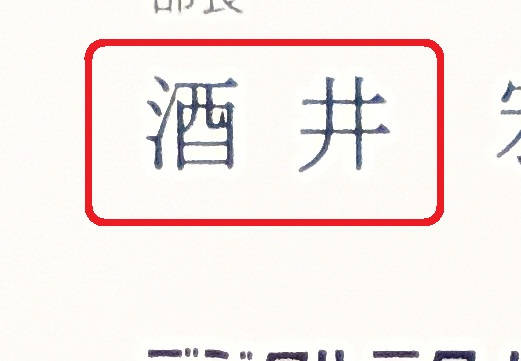May 26, 2017
The Mysterious Majesty of the Japanese Language.
Another few days in Tokyo, another whirlwind schedule of meetings, interviews, and dinners with old pals. Speeches at conferences too: I’m just back from one where I was talking about cybercrime – and the interpreting was not synchronous (!). Yes: lots of pauses :). I was so exhausted I thought I might faint on the stage at one point. But I stayed conscious, just.
Sadly, there’s been no time for tourism, only shigoto – work. At times I feel like a zoo animal: fed at regular intervals, then having to play to the crowd at allotted times.
Mid-shigota, I came across this here sign on the wall of the business center I was in:
Now, as a frequent visitor of Japan, I know a few symbols. But only a few. My level of katakana/hiragana is just below… touching the surface. I mean, I can recognize my name in Japanese syllabary, but that’s about it:
It works out, in Japanese, Ka-su-pe-ru-su-kee! And if we apply that tiny bit of knowledge to ‘Conference Room’ in the pic below, we get…
Ka-nu-fe-re-nu-su-ru-u-my!
What a wonderful language. Complicated too: in Japan they write in four different alphabets (the fourth – the Roman one). As regards numbers, they too have 0 – 9, plus numerals based on ancient Chinese ones, plus two sets of pronunciations of numerals too! Confused?! And I was told that before the adoption of Kanji there was no writing system at all, with the Chinese system later applied to the ancient language. And today, many word symbols mean different things at different times! Example: the word for ‘mountains’ can be either ‘san’ or ‘yama’ (so there’s often confusion with Fuji-san and Fuji-yama).
This is hardly the place to go into more detail of Japanese linguistic curiosities. That said here are two easy ones that spring to mind:
- Did you know that in Japanese there are several counting systems? And that long and round articles, for example, are considered with separate languages with special words for those same long/round articles (drinking glasses, wood, pipelines…).
- Did you know there’s a language where adjectives have a past tense form? That’s Japanese.
Since I know some kanji (around 200 symbols, I reckon), I carefully examine folks’ names on the business cards I get in exchange for mine at meetings and conferences.
Ah. And that’s a whole other thing: the Japanese consider it a duty to exchange business cards. No business card = no respect = a no-no.
Like today: our conference had 320 guests present. And I exchanged business cards with… probably more than a hundred of those guests! Good job I came with a dozen boxes. Aaaaanyway – that’s beside the point just now. The point just now is that – I get lots of fresh raw material to work with for brushing up on my hieroglyph awareness. And sometimes you see the oddest of incongruences; for example, a lady of very slight stature may have the symbol kuma (bear) in her name. So, she’s bear-like, only tiny!
Anyway, my linguistic catch of the day was plentiful. Example:
The surname of this Japanese is made up of just two symbols: those for sake and (water) well! Oh my geisha: a well full of rice vodka for your surname – who’d have thought that were possible?
Ok, that’s all for today folks. Time… to eat. And when in Japan… yes – you eat sushi, of course; only – not how you might eat it in, say, Jordan, Jamaica or Jersey. No, in Japan they eat it a little differently, as pointed out in this video:
…They also place the tongue in the cheek in between mouthfuls. Oh those Japanese :).
PS: If you’ve any questions about the real Japan and all things genuinely Japanese – fire away in the comments section below. I can pass them on to genuine real-deal Japanese colleagues of mine so you get the genuine real-deal answers you need!
Sayōnara folks. Mamonaku Nihon kara no tsuika…







